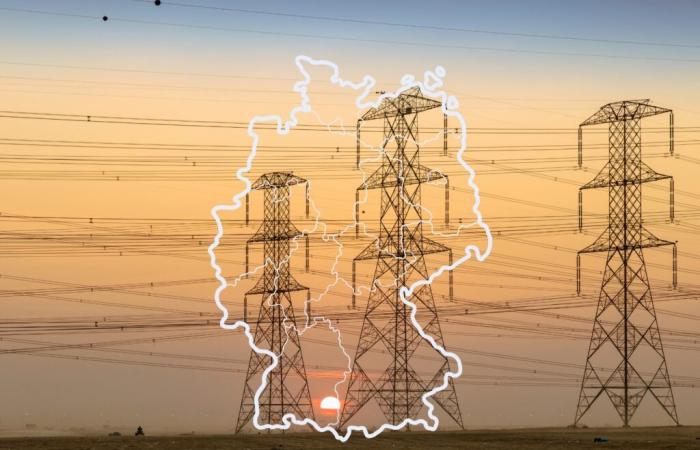Germany could be pushed to fragment its national price zone in several regions. To reduce the prices of electricity according to European managers of electrical networks, and reduce the fluctuation of prices according to Sweden. To which Germany categorically responds not, fearing an inequality between renewable production in the north and industries in the south, without solving the problem of the bottleneck between these two regions.
A report published on April 28 by the Association of European Managers of Electric Networks (ENTSO-E) dates to the surface a debate as technical as it is economic: should we split the price area of Germany-Luxembourg electricity? According to the authors, such a division in five areas would better reflect regional imbalances between production and consumption, by reducing the expensive use of balancing mechanisms. They estimate the net economic gain at 339 million euros per year from 2025. A drop of water, of course, it is less than 1 % of the costs of the system in central Europe, but that’s already.
In Germany, the reaction was not long in coming. The federal government, supported by manufacturers, rejects the idea. Especially since the future Merz government will also defend a single price zone, a principle included in the coalition agreement recently concluded. ENTSO-E would constantly overestimate the benefits, they accuse it, while fearing a soaring prices in the industrial zones of the Southwest. This split would harm competitiveness, already weakened by high prices. “A considerable uncertainty for consumers as for producers is the opposite of what we need in the current difficult situation”alerts the German Chemistry Federation with Echoes.
Read tooHydrogen, gas, nuclear: how Germany is missing its energy transition
Consequences on the Franco-German border
Does the German case arouse a French wave? France, often cited as an example of a centralized system, is not concerned for the moment by a reconfiguration: the report concludes that a division of France would have a negative effect on economic efficiency. In other words, the single French price area would remain the most suitable for its very centralized electric mix around nuclear. Last year, Sweden denounced the impact of the single German auction area on its prices and suspended a power line project, demanding that Berlin adopt multiple areas, like it.
But if Germany actually split into several zones, we could feel, in France, repercussions. First on the market: a differentiation of German prices according to the region could alter cross -border flows, therefore wholesale prices in French border areas. Then on common projects: the climate of tariff uncertainty would weigh on investments in interconnections or green electricity exchanges.
Read tooThese dozens of fossil gas power plants that Germany will build
Especially since the effects of such a reform remain difficult to anticipate. The report itself recognizes the limits of its methodology, based on data dated 2019, without taking into account recent shocks (COVID, Energy Crisis, the massive deployment plan of Renewable REPOWEREU). And the possible implementation, postponed by 2030, would give the German networks to adapt via alternative action plans.
Who therefore decides the market framework in an increasingly integrated electricity Europe? Berlin has six months to offer an answer. But it is the whole union that will feel the consequences.
The rest of your content after this announcement
The rest of your content after this announcement






